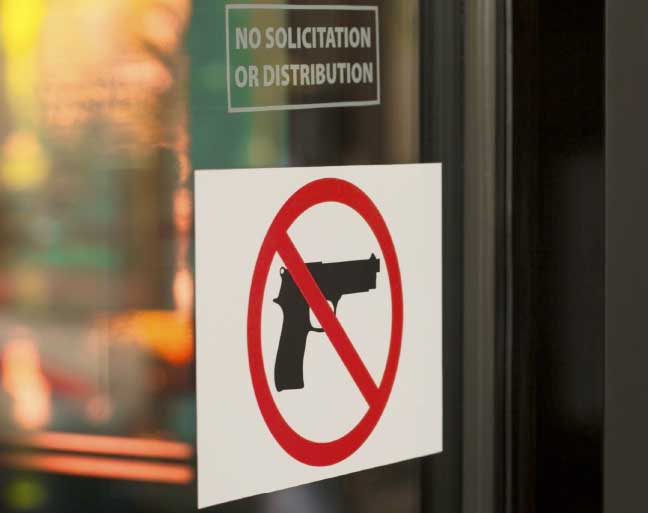The debate over gun rights often pits the individual’s right to bear arms and the rights of private property owners, such as employers, to prohibit firearms on their premises.
The Second Amendment is one of the most widely disputed provisions of the Bill of Rights. Two opposing interpretations dominate the debate: one that the amendment is intended to protect an individual’s right to bear arms, and the other that its purpose is to protect the states’ rights to maintain militias.
Forty-one states have “right to carry” laws, which allow individuals to carry weapons. Of these, 38 require individuals to apply for a permit; two have discretionary-issue carry permit systems. Vermont allows individuals to carry a weapon without permit, while Alaska, Arizona and Wyoming have a system whereby they will issue permits for permit reciprocity with other states. Currently, only the District of Columbia bans private individuals from carrying a concealed weapon.
What about Private Workplaces?
In most states, concealed weapons laws contain provisions that allow employers to prohibit possession of concealed weapons on their premises, and/or that prohibit carrying concealed weapons at certain “safety sensitive” sites, such as banks or schools.
Gun right advocates say that employer weapons bans violate their Second Amendment right to bear arms. At least 12 states, including Alaska, Arizona, Florida, Georgia, Kansas, Indiana, Louisiana, Kentucky, Minnesota, Mississippi , Oklahoma and Virginia, have laws that either expressly allow individuals with carry permits to keep weapons in their locked cars, or expressly prohibit employers from banning employees from keeping weapons in their locked cars while in the employer’s parking lots. (Most of these laws do restrict the right to bring firearms into certain safety-sensitive areas, such as prisons, schools, etc.)
In most instances, employers can still exercise their private property rights and prohibit employees from bringing firearms into their buildings if they post notices conspicuously at all entrances. Many safety experts recommend banning weapons to protect employee safety and limit the employer’s liability for weapons-related injuries and deaths. Before implementing a weapons ban, however, employers should know the concealed weapons laws that apply in their state or municipality. For information, contact an attorney.



